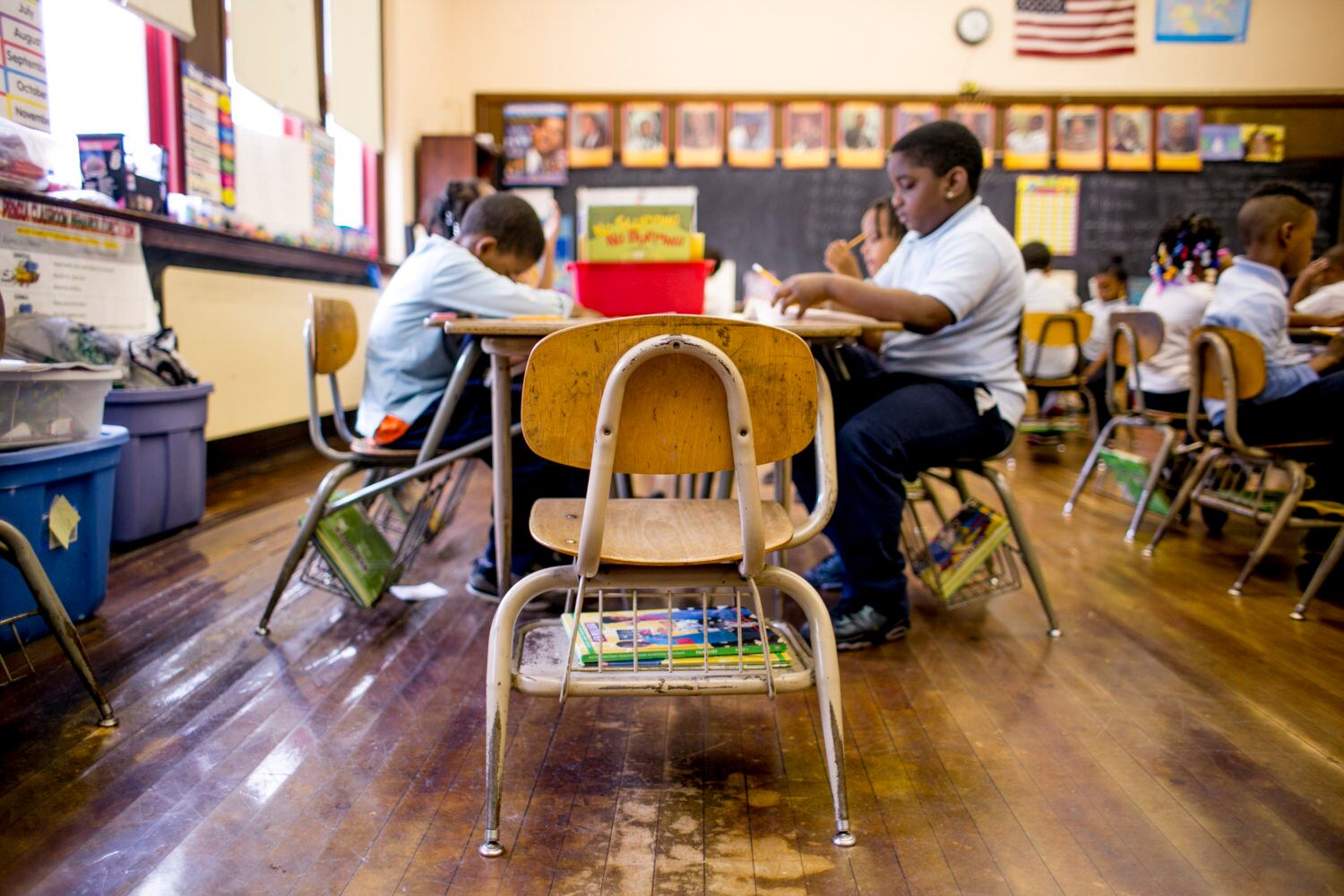Reports of falling graduation rates, increased chronic absenteeism, and low high school literacy levels had Detroit school board members pushing for change during their meeting this week.
Superintendent Nikolai Vitti noted that the district’s reading intervention efforts are working, based on K-8 reading placement levels. But board members expressed concern about the number of high schoolers still reading below grade level, and graduating without basic literacy skills.
Vitti faced questions specifically about the district’s choices on literacy tutoring programs, and whether it was underutilizing a local volunteer-led program called Let’s Read.
Also during Tuesday’s meeting, the school board unanimously adopted a resolution recognizing Pride Month, as well as other months and observances that “celebrate the vast diversity of our community.”
Here’s a look at some of the highlights of the meeting:
Is the district underusing ‘Let’s Read’ program?
The district is using federal COVID relief funding to help cover intensive literacy tutoring programs to help students recover from disruptions during the pandemic. It awarded contracts to a group called Beyond Basics to serve high schoolers, and to a company called Brainspring, which is providing literacy intervention for K-3 and virtual school students.
Beyond Basics is a Southfield-based nonprofit that specializes in providing one-on-one and small group literacy tutoring. The organization has partnered with the Detroit school district for over two decades.
Vitti reported that reading intervention programs like Beyond Basics have improved overall literacy levels for K-12 students. He said he’d like to see Beyond Basics and similar programs implemented for future academic years, but cautions that funding them will be difficult after the federal aid runs out. Under its 2021-22 contract with the school board, services from Beyond Basics were financed with COVID relief funding and money the district received through a “right to read” lawsuit settlement.
Board member Sherry Gay-Dagnogo asked Vitti if the district could be making better use of Let’s Read, a program the district created in early 2019 with longtime Detroit education activist Helen Moore. Let’s Read, which was launched in advance of a new reading proficiency law for third-graders, connects adult volunteer tutors with K-3 students to help them improve their reading comprehension.
Apart from printing reading materials and offering training to the volunteers, Vitti said the district has not invested in Let’s Read. The choice of Beyond Basics was “not to undermine other tutoring services that are provided,” Vitti said. “But when a student is two or more grade levels (behind), they need intensive, research-based, multisensory intervention. And that’s what this intervention method provides.”
Vitti said 10th and 11th graders should see about two years’ worth of literacy growth in a semester of Beyond Basics intervention. There is no comparable data regarding the impact of Let’s Read on literacy levels, he said.
Vitti said he believed the pandemic limited the potential of Let’s Read by making volunteer tutors nervous about working in person with students. Out of the 99 Let’s Read volunteers who signed up online for 2021-22, just 29 showed up to participate, he said.
Some meeting attendees challenged that explanation. Aliya Moore, who is not related to Helen Moore, said she thought the low response was due to the district not reaching out to many of the volunteers who signed up.
Another attendee, Theo Broughton, said during the public comment period: “I’m hearing there were 99 tutors … but not to call the tutors, if that’s what happened, it’s as if you want the children at DPS to fail.”
Gay-Dagnogo urged the board to get rid of any barriers that might keep interested Let’s Read volunteers from participating.
“I don’t know if we’re presenting a barrier, or just the perception that there’s a barrier, but either way, I think we need to do a better job with transparency so that we can neutralize the ongoing disappointment of those who feel like we are somehow holding (Let’s Read) back.”
Vitti promised that 2022-23 will be the year the district “ramps up Let’s Read.”
Chronic absenteeism worsens for another year
The proportion of Detroit school district students who missed 10% or more of the school year worsened, Vitti said, in large part because of the district’s quarantine requirement for students who came into contact with COVID-infected people.
The chronic absenteeism rate rose to 77.6% in 2021-22, from 68.5% the previous school year. Before the pandemic, Vitti added, the district was making strides to improve attendance.
Vitti said the district still needed to address other reasons for absenteeism among high school students. A districtwide survey of students found students felt less loved and appreciated as they went into high school.
“The high school experience, bottom line for students, has to improve,” he said.
Between increased academic rigor in the classroom, better relationships with students, and continued investment in wraparound services and mental health, he added, the district needed to reprioritize its efforts to support high schoolers.
Board members weigh a new test to measure reading proficiency
As Superintendent Vitti outlined end-of-year data, some board members questioned how and when the district would improve graduation rates and reading proficiency among its students.
DPSCD’s four-year graduation rate fell 8 percentage points to 64.5% for the 2020-21 school year. The rate for the latest school year is expected to be reported in August.
Moreover, the percentage of students who are two or more grades behind reading level increased over the course of the pandemic, Vitti said.
To improve the graduation rate, Vitti said, the district is taking steps to help students make up coursework. It’s offering teachers extra pay to teach additional courses during the day, and offering after-school courses to help students make up missed credit.
“The graduation rate is not going to move overnight, but I do believe it’s going to incrementally improve,” Vitti said.
But board members and members of the public said they were disappointed by the students’ trajectory.
“I am really outraged at the numbers,” said board member Sonya Mays.
“At this rate … we are still having hundreds of students leave this district without something as basic as a high school diploma, and I just find that really outrageous,” Mays said.
Board President Angelique Peterson-Mayberry said in conjunction with improving the graduation rate, she supported testing students in reading proficiency before they graduated from the district.
“We’re doing a disservice to send students out into the world and not prepare them with basic skills,” she said.
Michigan does not currently have a standardized literacy assessment required for students to graduate, Vitti said. The only tests that the Detroit school district uses as the “best indicator” of a student’s reading grade level are the PSAT and the SAT. But both tests are designed to determine if students have the skills and knowledge to enroll in college.
Vitti said one option would be to create a literacy test for 12th graders, but he cautioned against requiring students to take more tests, adding that he preferred focusing on college readiness.
“I think we also have to be very careful when we talk about who is literate and who is not literate, because a standardized test does not always define that,” Vitti said.
Ethan Bakuli is a reporter for Chalkbeat Detroit covering Detroit Public Schools Community District. Contact Ethan at ebakuli@chalkbeat.org.
Grace Tucker is an intern with Chalkbeat Detroit. You can reach her at gtucker@chalkbeat.org.






